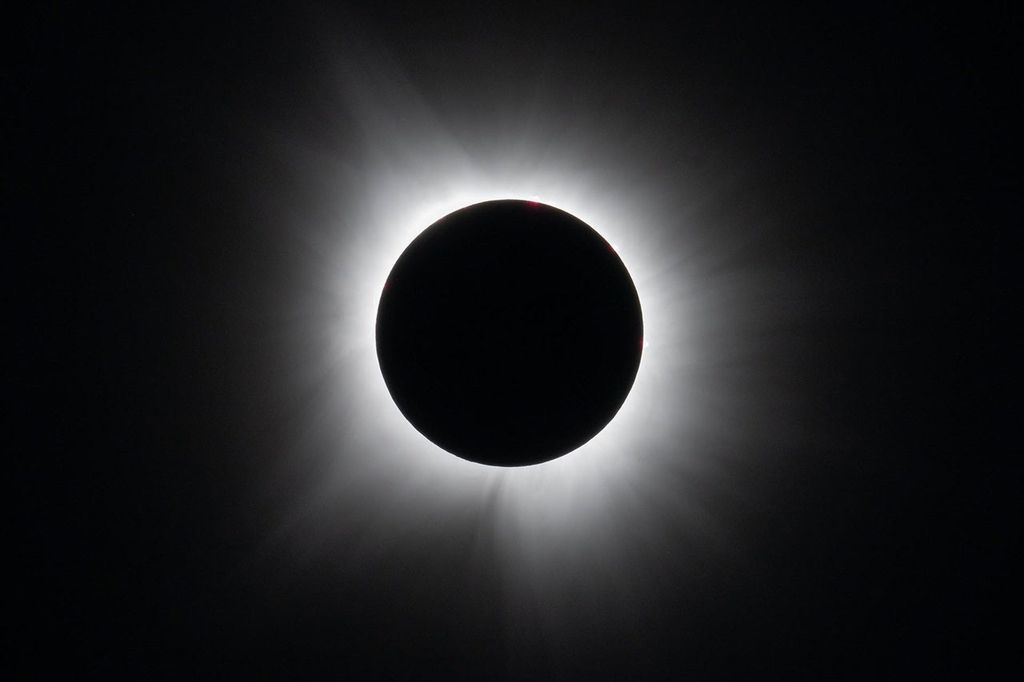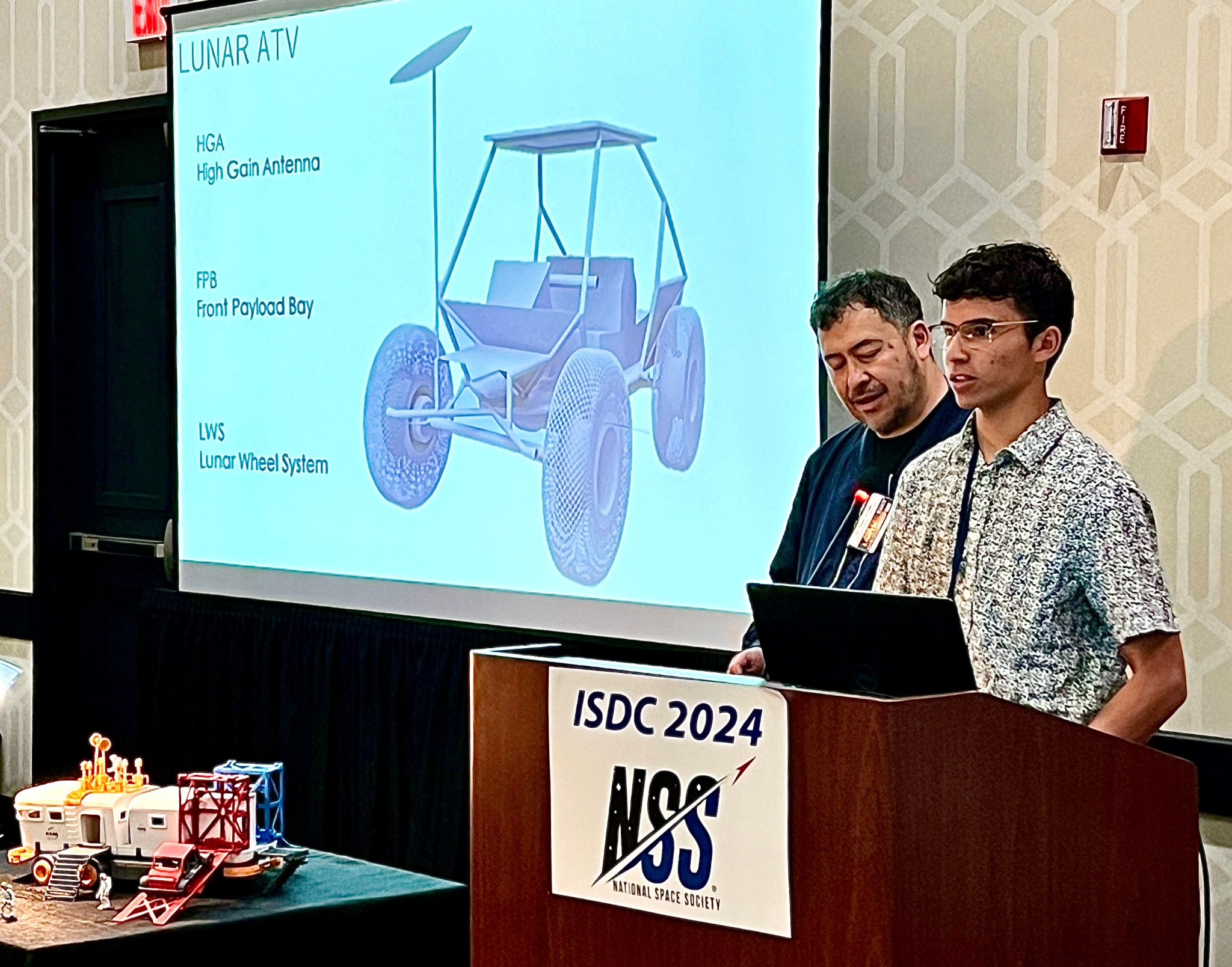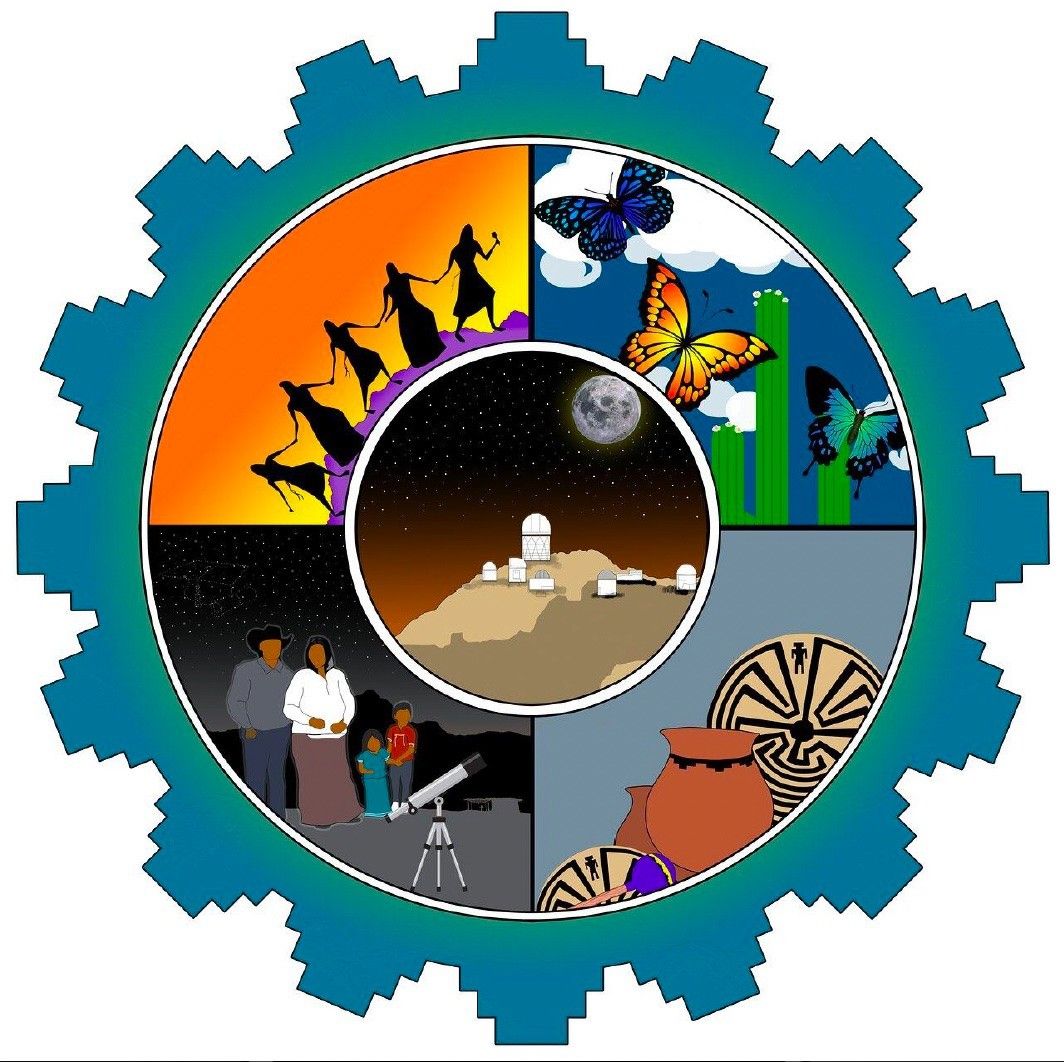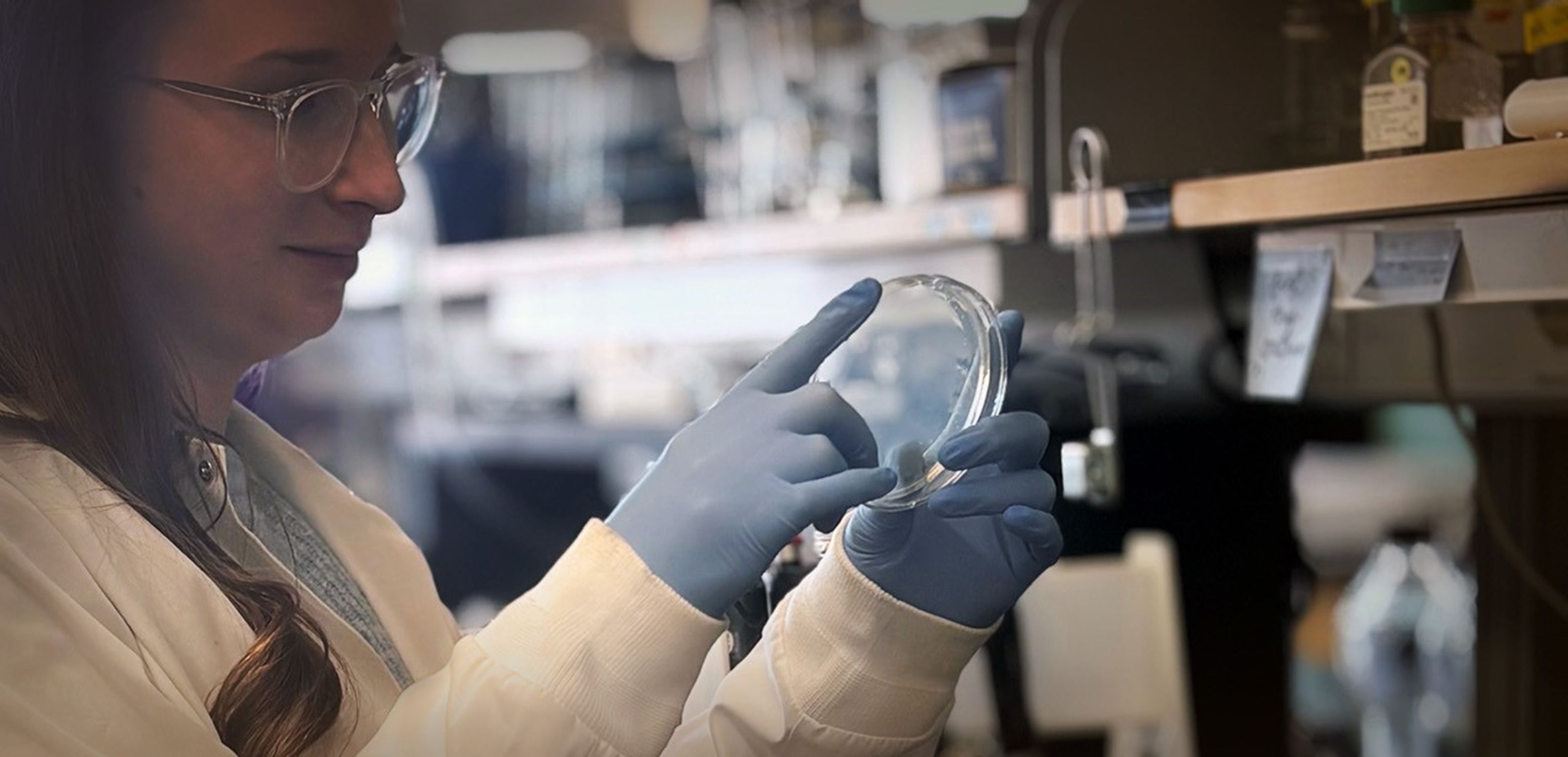Two high school interns funded by NASA's Neurodiversity Network (N3) presented their work from Summer 2023 at the recent National Space Society (NSS) International Space Development Conference (ISDC-2024), held in Los Angeles, CA (May 23-26, 2024). Both interns were mentored by Dr. Pascal Lee, Planetary Scientist at the SETI Institute and Chair of the Mars Institute, who accompanied them to the conference. Intern Finn Braun, who is now a high school junior, co-authored the paper "An ATV for the Moon" with Dr. Lee. He worked with a CAD program to develop the concept, which might be of interest to NASA's Artemis Program in the future. Intern Krista Heinemann, who has now graduated high school, co-authored the paper "New location for the 'Noctis Landing' candidate human landing site on Mars" in which she used NASA data about the Noctis Landing site provided by Dr. Lee to refine a possible landing location for future human missions to the surface of Mars. In addition to the oral presentations they gave, Braun and Heinemann lead-authored technical publications reporting their research. Braun and Heinemann were part of the 2023 N3 intern cohort, which included 19 other high school students, each paired with a NASA Subject Matter Expert as a mentor. The N3 internship program is now beginning its fourth summer with a new cohort of 21 additional interns.
Dr. Lee noted, "Finn and Krista were outstanding interns, who now each have lead-authored scientific/technical publications while in high school. I am sure they will each do great things in the future."
The references for the two papers are:
Braun, F. and P. Lee 2024. An ATV for the Moon. National Space Society International Space Development Conference, ISDC-2024, 23-26 May 2024, Los Angeles, CA, Moon Track, #2003.
Heinemann, K. and P. Lee 2024. New location for the 'Noctis Landing' candidate human landing site on Mars. National Space Society International Space Development Conference, ISDC-2024, 23-26 May 2024, Los Angeles, CA, Mars Track, #3002.
NASA's Neurodiversity Network is supported by NASA under cooperative agreement award number 80NSSC21M0004 and is part of NASA’s Science Activation Portfolio. Learn more about how Science Activation connects NASA science experts, real content, and experiences with community leaders to do science in ways that activate minds and promote deeper understanding of our world and beyond: https://science.nasa.gov/learn
































